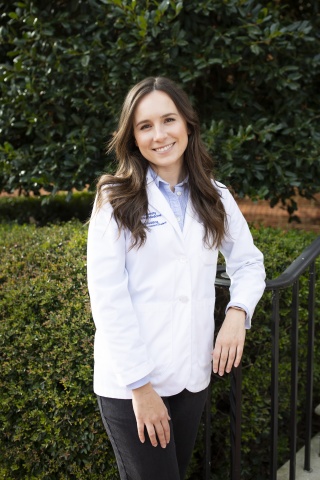
Kailey Redding, MPH, Stead Society president for the Duke Physician Assistant Program Class of 2020, hopes to work at the intersection of public health and medicine. As a National Health Service Corps Scholar, she will serve as a primary care provider in a health provider shortage area for at least the first three years of her career.
Why did you want to become a PA?
Until the middle of high school I wanted to be an artist, but science classes and a summer leadership forum before my senior year are what pointed me in the direction of medicine. The decision to attend PA school versus another health profession came with the realization that I was also interested in public health. My pre-PA experience at Boston Healthcare for the Homeless (BHCHP) really informed this realization. To me, becoming a PA allows me to focus on preventive medicine and social justice through medicine.
What was your patient care experience like before coming to the Duke Physician Assistant Program? How did that help you prepare for your time here?
I worked as a nursing assistant on a medical-surgical floor at Massachusetts Eye & Ear Infirmary (MEEI) where I learned how to couple dignity and respect with a little humor to help patients’ healing processes. I consider my time at MEEI to be very formative in my physical medicine skill-building, and my second co-op at Boston Healthcare for the Homeless to be my social medicine skill-building. At BHCHP, I floated among the many different specialty clinics, from the HIV team to the Supportive Place for Observation and Treatment, where our patients struggling with opioid use disorder could safely ride out their high under medical supervision. I recognize and appreciate just how privileged I am to have had this experience, and hope to return to a similar patient population as a clinician.
Do you have a favorite memory from your time as a PA student?
I think my favorite memory from preclinical year is the highly supportive attitude of my anatomy lab group. I was really nervous for the first cadaver lab, which I warned my three other group members about, and they did their absolute best to help me relax and go with it. Throughout the semester, we came up with mnemonics, hand movements, and dances to remember muscles or parts of the brain.
How has the program’s mission shaped your plans and goals?
The mission of the program embodies the plans I have for my future career as a primary care provider and a leader in the ever-changing field of health care, and remembering this has been great for centering myself when I start to feel overwhelmed.
What made you decide to run for Stead Society President and what are you most proud of during your tenure?
I see leadership in student organizations as a way to get to know the intricacies of how your programs work and why things are done the way they are done. Being in a leadership position allows me to feel more tied to my university and my fellow students. We raised over $5,000 with our first apparel sale alone, and we were successful in revamping the Stead bylaws to pass along a current edition to the next classes.
Why should prospective students consider the Duke PA program?
I genuinely believe that the Duke PA program sees you as a whole person with unique and important experiences. The program has done nothing but build me up and make me proud of those unique experiences and passions I have. I feel truly valued and respected by everyone here.
What have you learned while being a PA student during the COVID-19 crisis that you will carry with you into your career?
Our program director constantly brings up the theme of PAs being flexible, and there is no better proof of that than this pandemic. We have been required to completely change our impressions of what clinical year would look like, and to be ready for change with little notice. As if we are in one big improv class, we are “Yes, and…”–ing the pandemic. This mindset is important in delivering patient-centered and unbiased care, particularly when a patient offers you information you may disagree with, that surprises you, or even makes you uncomfortable. My future patients will have unpredictable and dynamic socioeconomic factors to consider when delivering their care, and an ability to prepare myself and my patients for a variety of possible scenarios or hurdles will be important to their health.